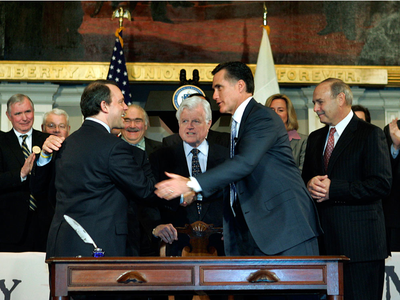Advertisement
The Wonk Olympics: Sweeping New Health Cost-Cutting Plan Coming

The House and Senate are expected to build on movements that are already under way: global payments, electronic health records and the increased focus on primary care. The House point person on health care, Steven Walsh, has outlined his proposals in meetings with dozens of groups.
Legislators are considering some controversial moves.
The Senate has talked about taxing insurance company profits. One House leader has a proposal to close the gap in payments to rich and poor hospitals. There’s a vigorous debate about how aggressive the state should be in trying to hold down health care costs.
Health care is 18 percent of the Massachusetts economy. Trying to reorganize and reduce health care spending without hurting the health care industry is a high-stakes gamble. And, as Cutler pointed out, the nation is watching.
“A few years ago, Massachusetts was the first state in country to decide that we can and we will cover everybody,” Cutler said. “And then the rest of the country followed. Now is our opportunity to show that we can make the health care system work for everybody. And if we do that then the rest of the nation will follow as well.”
This program aired on May 3, 2012. The audio for this program is not available.
